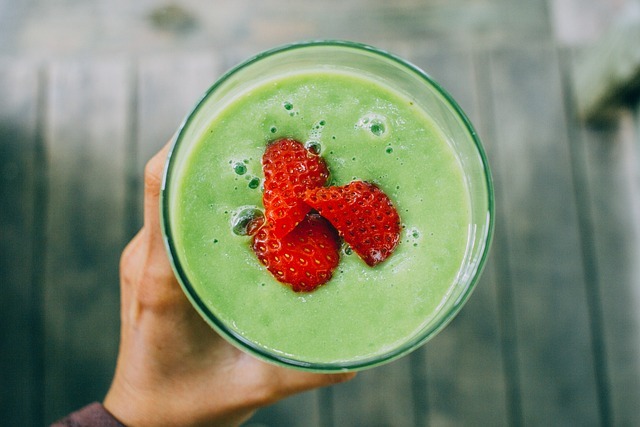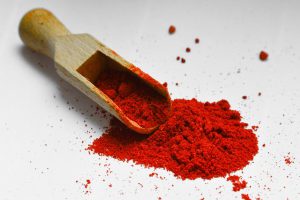
Is Wheat Grass Gluten Free? Unveiling the Truth
Nov 9, 2023
Introduction
In the pursuit of a healthier and fitter life, we often explore various avenues, from workouts to dietary choices. One such dietary choice that has gained popularity in recent years is wheatgrass. Many individuals are now turning to wheatgrass as a potential superfood to enhance their overall well-being. This article will delve into the world of wheatgrass, its potential health benefits, and, importantly, answer the pressing question: “Is wheatgrass gluten-free?”.
The Wonder of Wheatgrass
Wheatgrass is a powerful plant-based food that is gaining recognition for its potential health benefits. It’s a young grass of the wheat plant, scientifically known as Triticum aestivum. Its vibrant green color and numerous nutrients make it a fascinating choice for those seeking to boost their health and fitness levels. Before we explore the intricacies of wheatgrass, let’s address the pressing query: “Is wheatgrass gluten-free?”
Is Wheatgrass Gluten-Free?
Wheatgrass is undoubtedly a remarkable plant, celebrated for its numerous health benefits and vibrant green color. It has gained immense popularity as a superfood and is often consumed in the form of juices, shots, or supplements. One of the most common questions asked about wheatgrass is whether it is gluten-free. The short answer to this question is a resounding “yes.” Wheatgrass is indeed gluten-free, and this is excellent news for individuals with gluten sensitivities or celiac disease.
To understand why wheatgrass is gluten-free, it’s crucial to delve into the science behind it. Gluten, a complex protein, is primarily found in the endosperm of wheat grains. It is this protein that causes adverse reactions in people with gluten-related disorders. However, wheatgrass is harvested at a unique stage in its growth cycle, well before the formation of grains and, consequently, gluten. Typically, wheatgrass is harvested when it is just seven to eleven days old. During this early stage, it primarily consists of blade-like leaves and does not contain gluten.
The young age at which wheatgrass is harvested is a key factor in its gluten-free status. Gluten, as mentioned earlier, is a constituent of the wheat grain, and it is only when the wheat plant matures and produces grains that gluten becomes present. The leaves of the wheatgrass plant, on the other hand, are free from gluten throughout their growth cycle. This makes wheatgrass a safe option for individuals who need to adhere to a gluten-free diet.
Beyond its gluten-free status, wheatgrass offers a plethora of health benefits, making it a popular addition to wellness routines around the world. It is renowned for its high concentration of essential vitamins, minerals, and antioxidants. This nutrient-rich composition contributes to various potential health advantages. Let’s take a closer look at some of the key benefits of incorporating wheatgrass into your diet.
The Nutritional Powerhouse
ow that we’ve established that wheatgrass is indeed gluten-free, let’s explore the extraordinary nutritional profile that makes it a true nutritional powerhouse. Wheatgrass is not only free of gluten but also packed with a wide range of essential vitamins, minerals, and antioxidants, making it an ideal addition to your diet to support overall well-being and enhance your fitness journey.
Vitamins and Minerals
Wheatgrass boasts an impressive array of vitamins and minerals that are crucial for maintaining good health, bolstering your immune system, and providing essential support for your fitness endeavors. Among the vitamins present in wheatgrass are vitamins A, C, and E, which are known for their potent antioxidant properties. These antioxidants play a pivotal role in protecting your body from oxidative stress and the harmful effects of free radicals.
Vitamin A, found abundantly in wheatgrass, contributes to healthy skin, vision, and immune function. Vitamin C, another key component, supports the immune system, promotes healthy skin, and aids in wound healing. Lastly, vitamin E offers protection against cell damage, making it valuable for overall health and well-being.
In addition to vitamins, wheatgrass contains a variety of essential minerals that are essential for various bodily functions. Iron, an integral component of wheatgrass, is vital for the production of hemoglobin, the molecule responsible for carrying oxygen in your blood. Without sufficient iron, you may experience fatigue and a decreased ability to perform at your best, especially during physical activities.
Magnesium, another mineral found in wheatgrass, is indispensable for muscle function, nerve function, and maintaining strong bones. Adequate magnesium levels can help prevent muscle cramps and support overall athletic performance. Calcium, also present in wheatgrass, plays a vital role in maintaining strong bones and teeth, making it particularly important for those engaged in strenuous physical activities.
Potassium, yet another mineral in wheatgrass, is essential for maintaining proper electrolyte balance in the body, which is crucial for muscle contractions and nerve impulses. Balanced electrolytes are especially important during and after exercise to prevent cramping and ensure efficient muscle function.
Antioxidants
Wheatgrass is a treasure trove of antioxidants, with one of its standout components being chlorophyll. Chlorophyll, the green pigment responsible for the vibrant color of wheatgrass, is not only visually appealing but also a powerful antioxidant. It is associated with anti-inflammatory and detoxifying properties, helping the body combat the effects of oxidative stress.
Beyond its role as an antioxidant, chlorophyll plays a crucial role in promoting healthy blood circulation. By increasing the oxygen supply in your body, it enhances overall oxygen delivery to your cells. This oxygen boost can be particularly advantageous for athletes and fitness enthusiasts looking to enhance their stamina, endurance, and overall physical performance. Improved oxygen delivery means that your muscles can work more efficiently and for more extended periods, which can be a game-changer during intense workouts or physical activities.
Protein
Protein is a macronutrient that’s indispensable for anyone engaged in regular exercise, strength training, or fitness pursuits. Whether you’re a dedicated athlete or simply aiming to stay active, protein is a critical component of your diet for muscle repair and growth. Wheatgrass, though not typically considered a primary source of protein, contains a moderate amount, making it a valuable addition, especially for those following a plant-based or vegetarian diet.
The protein content in wheatgrass, while not as high as that in traditional protein sources like meat or legumes, is significant enough to contribute to your daily protein intake. Protein is essential for repairing and building muscles, a process that is particularly important for those who engage in intense physical activities. Wheatgrass can be a convenient and nutritious way to incorporate some extra protein into your diet, ensuring that your muscles have the essential building blocks they need to recover and grow.
Incorporating wheatgrass into your daily routine, whether as a shot, juice, or supplement, can provide you with a wealth of nutrients and antioxidants that support your overall well-being. It’s important to remember that while wheatgrass offers numerous health benefits, individual responses can vary. Some people may notice increased energy, improved digestion, and a sense of vitality, while others may experience more subtle effects. As with any dietary change or supplement, it’s wise to consult with a healthcare professional to ensure that it aligns with your specific health goals and needs.
In summary, wheatgrass stands as a nutritional powerhouse, boasting a plethora of vitamins, minerals, antioxidants, and even a moderate amount of protein. Its vibrant green color is not just visually appealing; it signifies the presence of valuable nutrients that can support your immune system, bone health, and energy levels. Whether you’re an athlete seeking to boost your performance or someone simply looking to improve their overall health, wheatgrass is a natural and wholesome choice to consider adding to your daily regimen.
Boosting Fitness and Performance
Wheatgrass, with its unique and potent nutrient composition, offers a myriad of benefits for individuals dedicated to their fitness journey. Whether you’re a seasoned athlete striving for peak performance or someone simply looking to enhance their physical well-being, incorporating wheatgrass into your diet can make a noticeable difference in your pursuit of fitness and well-being.
Improved Stamina
One of the key advantages of wheatgrass in the realm of fitness is its remarkable potential to boost stamina. This remarkable attribute can be attributed to chlorophyll, one of the prominent components found in wheatgrass. Chlorophyll, the green pigment responsible for the vibrant color of wheatgrass, plays a pivotal role in enhancing oxygen transport in the body.
When you have a higher level of oxygen circulating in your system, it can lead to a noticeable and significant improvement in your endurance during workouts and physical activities. This increase in oxygen can be the game-changer you’ve been searching for in your fitness routine. With improved stamina, you can push your limits, perform at a higher intensity, and reach new levels of achievement in your fitness goals.
In essence, chlorophyll acts as a natural oxygen booster, increasing the oxygen supply to your body’s cells. This oxygen enhancement results in improved blood circulation, which, in turn, benefits your overall physical performance. It’s particularly advantageous for athletes and fitness enthusiasts who rely on endurance and stamina to excel in their respective sports or activities.
Muscle Recovery
Wheatgrass isn’t solely about enhancing your performance; it also plays a significant role in aiding post-workout recovery. The rich antioxidant content in wheatgrass is a powerful asset in this regard. These antioxidants, including chlorophyll, help to reduce inflammation and promote the efficient repair of muscle tissues. After a strenuous workout, your muscles are in need of repair and rejuvenation, and this is where the anti-inflammatory properties of wheatgrass come into play.
Reducing post-workout inflammation is vital for faster recovery and reducing the risk of muscle soreness. Whether you’re an elite athlete or someone committed to regular exercise, the ability to recover quickly and effectively is a critical factor in maintaining consistency in your fitness routine. Wheatgrass’s contribution to muscle recovery can be a game-changer in ensuring that you can return to your workouts feeling refreshed and ready to tackle your next fitness challenge.
Weight Management
Maintaining a healthy weight is a common fitness goal for many individuals, and here, too, wheatgrass can offer support. This superfood is characterized by its low-calorie, high-nutrient composition, making it an excellent choice for those looking to shed excess pounds or maintain their current weight. It can be a valuable addition to a balanced diet that promotes weight management.
Wheatgrass provides a nutrient-dense option, meaning you can consume it without worrying about an excessive calorie intake. It’s an ideal choice for individuals who are conscious of their calorie consumption but still want to ensure that they’re getting the essential nutrients needed to support their fitness and overall well-being. When incorporated into a weight management plan, wheatgrass can help you maintain a sense of fullness without the added calories, ultimately contributing to your efforts to reach or maintain your desired weight.
Furthermore, the chlorophyll content in wheatgrass, which has already been highlighted for its role in enhancing oxygen supply and blood circulation, can have additional benefits for those seeking weight management. Some experts suggest that chlorophyll may help curb food cravings and suppress appetite, making it easier to adhere to a calorie-controlled diet and resist the temptation of unhealthy snacks. While this aspect of chlorophyll’s impact on weight management may vary from person to person, it’s an intriguing potential benefit that can further support your fitness goals.
Incorporating wheatgrass into your daily routine as part of your pre-workout or post-workout regimen, or simply as a dietary addition, can provide you with a valuable arsenal of nutrients and attributes that directly benefit your fitness journey. Whether you’re striving for improved stamina, faster muscle recovery, or weight management, wheatgrass is a natural and wholesome choice to consider as a complementary component of your fitness and health plan.
Remember that while wheatgrass offers numerous potential benefits for fitness enthusiasts, individual responses can vary. Some individuals may experience a more noticeable impact on their stamina and recovery, while others may find it to be a subtler addition to their fitness regimen. As with any dietary change or supplement, it’s advisable to consult with a healthcare professional to ensure that it aligns with your specific health goals and needs.
Incorporating Wheatgrass Into Your Diet
Now that you have gained insights into the potential health benefits of wheatgrass, you might be eager to explore the various ways to incorporate it into your daily routine. Wheatgrass offers a versatile array of consumption methods, and we’ll delve into some of the most popular and accessible options that can seamlessly integrate this superfood into your diet.
Wheatgrass Shots
Wheatgrass shots have emerged as a prominent trend in health-conscious circles, offering a concentrated and convenient way to experience the benefits of this green powerhouse. These shots are typically crafted by juicing fresh wheatgrass, thereby providing a potent dose of its rich nutrients. You can easily find wheatgrass shots in health food stores, juice bars, or even embark on a home juicing adventure if you have access to fresh wheatgrass.
Wheatgrass shots are favored for their quick and efficient delivery of wheatgrass goodness. A small 1-ounce shot can pack a substantial nutritional punch, making it an excellent choice for those seeking a potent and immediate infusion of wheatgrass benefits. It’s a favored option for individuals with busy schedules or those who prefer a convenient and on-the-go method of incorporating wheatgrass into their daily routine.
Consuming wheatgrass in the form of shots allows you to experience its vibrant green essence, and the flavor is often described as earthy and slightly grassy. For some, the taste may take a bit of getting used to, but it’s worth the effort for the remarkable benefits it offers.
Wheatgrass Powder
For those seeking a more versatile and long-lasting alternative, wheatgrass powder is an ideal choice. Wheatgrass powder is created by carefully drying and finely grinding fresh wheatgrass, resulting in a concentrated powdered form. This powdered form is incredibly versatile and can be seamlessly integrated into your diet in various ways.
One of the most popular methods of incorporating wheatgrass powder is by adding it to smoothies and shakes. A spoonful of wheatgrass powder can transform your morning smoothie into a nutrient-rich powerhouse. It blends seamlessly with other ingredients, allowing you to enjoy the benefits of wheatgrass without any significant alteration in taste.
Additionally, wheatgrass powder can be mixed with water or your choice of beverage, making it a convenient and flexible option for those who want to maintain a consistent wheatgrass intake without the effort of juicing or dealing with the taste of fresh wheatgrass.
Wheatgrass powder is prized for its versatility and longer shelf life. It can be stored without refrigeration and is readily available for use whenever you need it. This makes it an excellent choice for individuals who appreciate the convenience and extended usability of a powdered form of wheatgrass.
Wheatgrass Capsules
If the taste of wheatgrass is not to your liking, there’s a tasteless alternative that doesn’t compromise on the benefits: wheatgrass capsules. These capsules contain wheatgrass powder, neatly encapsulated and ready to be consumed with a glass of water. They offer a convenient and unobtrusive way to ensure you get your daily dose of wheatgrass without any undesirable aftertaste.
Wheatgrass capsules are particularly well-suited for individuals who are sensitive to the flavor of wheatgrass or have difficulty with its distinct earthy notes. The encapsulation process effectively masks the taste while delivering the nutritional advantages of wheatgrass directly to your system. This option is discreet and suitable for those who may be on the go or simply prefer a straightforward and convenient method of incorporating wheatgrass into their daily routine.
Fresh Wheatgrass
For the purists and gardening enthusiasts who relish the idea of nurturing their own crop, growing fresh wheatgrass at home is a rewarding and gratifying endeavor. To embark on this journey, you’ll need a few basic essentials: wheatgrass seeds, a suitable tray, and some dedication to care for your growing crop.
The process of growing fresh wheatgrass involves sowing the seeds in a tray filled with a growing medium, nurturing them through the stages of germination and growth, and eventually harvesting the vibrant blades at their nutritional peak. This allows you to enjoy the freshest wheatgrass experience possible, as you can immediately juice it or add it to your favorite recipes.
Growing your wheatgrass at home provides the added benefit of complete control over the quality and purity of the crop. You can choose organic seeds and growing methods, ensuring that your homegrown wheatgrass is free from pesticides and other contaminants. This option allows you to not only enjoy the nutritional advantages of wheatgrass but also connect with the process of cultivating your own superfood.
Incorporating fresh wheatgrass into your daily routine, whether by juicing it or creatively adding it to recipes, can be a deeply satisfying and nutritious experience. It’s an option for those who appreciate the essence of freshness and want to be actively involved in the journey from seed to harvest.
In summary, there are various exciting and accessible ways to incorporate wheatgrass into your diet, tailored to your preferences and lifestyle. Whether you opt for the efficiency of wheatgrass shots, the versatility of wheatgrass powder, the discretion of wheatgrass capsules, or the fulfillment of growing your own fresh wheatgrass, you can tap into the extraordinary benefits of this nutritional powerhouse. Regardless of your choice, the vibrant green essence of wheatgrass is poised to enrich your daily routine and contribute to your overall well-being.
Potential Side Effects and Precautions
While wheatgrass offers numerous benefits for health and well-being, it’s important to be aware of potential side effects and take necessary precautions when incorporating it into your diet. Here are some key considerations to keep in mind:
Allergies
One of the potential side effects of wheatgrass consumption is allergic reactions. Some individuals may be susceptible to allergies triggered by wheatgrass, particularly if they have sensitivities to grass pollen or other plants in the Poaceae family, to which wheatgrass belongs. If you have a history of allergies, it’s advisable to consult a healthcare professional before introducing wheatgrass into your diet. They can assess your specific situation and recommend a suitable course of action to minimize the risk of allergic reactions.
While wheatgrass is generally considered safe for most people, it’s crucial to exercise caution if you have a known allergy to grasses, as cross-reactivity is possible. Your healthcare provider can help you determine if it’s safe for you to consume wheatgrass or if alternative options should be considered.
Digestive Issues
Wheatgrass is renowned for its detoxifying properties, which can have a noticeable impact on the digestive system. It’s not uncommon for individuals to experience mild digestive issues when first incorporating wheatgrass into their diet. This can include symptoms such as stomach discomfort, bloating, or changes in bowel movements.
If you encounter digestive issues when beginning to consume wheatgrass, there’s no need to be overly concerned. These initial discomforts are often transient and a sign that your body is adapting to the detoxifying effects of wheatgrass. To mitigate these effects, it’s recommended to start with small amounts and gradually increase your intake as your body adjusts. This allows your digestive system to acclimate to the changes brought about by wheatgrass.
Moreover, consuming wheatgrass alongside other foods or in the form of a smoothie can help minimize potential digestive discomfort. The fiber and nutrients in accompanying foods can provide a buffer for your stomach and intestines, making it easier for your body to adapt to the introduction of wheatgrass.
Interactions with Medications
Another important consideration is the potential for interactions between wheatgrass and certain medications. If you are currently taking prescription drugs, it’s essential to consult with your healthcare provider before adding wheatgrass to your diet. This precaution is necessary to ensure there are no conflicts or adverse effects resulting from the combination of wheatgrass and your medications.
Wheatgrass is known for its rich nutrient content and potential to interact with the body’s metabolic processes. Consequently, it may influence the way certain medications are absorbed or metabolized. To prevent any potential complications or diminished medication efficacy, your healthcare provider can review your medication regimen and provide guidance on whether it’s safe to incorporate wheatgrass into your diet.
By communicating with your healthcare professional, you can make informed decisions about how to best include wheatgrass in your diet while managing your existing health considerations.
In summary, while wheatgrass offers a plethora of health benefits, it’s essential to be aware of potential side effects and take necessary precautions. Allergies, digestive discomfort, and medication interactions are some of the aspects to consider when introducing wheatgrass into your dietary routine. By consulting with a healthcare provider, you can navigate these potential concerns and enjoy the remarkable advantages of wheatgrass with confidence and peace of mind. Remember that safety and well-being are paramount as you embark on your journey to harness the power of this green superfood.
Wheatgrass and Your Immune System
Your immune system plays a vital role in your overall health and fitness journey. The nutrients in wheatgrass can contribute to a stronger immune system, providing you with added protection against illnesses and infections.
Vitamin C
Wheatgrass is a rich source of vitamin C, a powerful antioxidant that supports your immune system. Vitamin C helps your body produce white blood cells, which are essential for fighting off infections. Including wheatgrass in your diet can help keep your immune system in top shape.
Antioxidants
The antioxidants in wheatgrass, especially chlorophyll, contribute to reducing inflammation and protecting your cells from damage. By reducing oxidative stress, wheatgrass supports your body in maintaining a strong immune response.
Detoxification Benefits
Detoxification is often associated with improved health and fitness. While the body naturally detoxifies itself, adding wheatgrass to your diet can aid in this process.
Liver Health
Wheatgrass is often touted for its potential benefits for liver health, and some studies suggest that it may have positive effects on liver function. Here are some points to consider:
1. Detoxification support: Wheatgrass contains chlorophyll, a pigment responsible for its green color. Chlorophyll is believed to have detoxifying properties and may aid in the removal of toxins from the body. However, the specific effects of chlorophyll on liver detoxification require further scientific investigation.
2. Antioxidant properties: Wheatgrass is rich in antioxidants, including vitamins C and E, as well as flavonoids. These antioxidants help protect liver cells from oxidative stress caused by free radicals, potentially supporting liver health.
3. Nutrient content: Wheatgrass is a nutrient-dense food, containing vitamins, minerals, and enzymes that may contribute to overall health. Consuming a balanced diet that includes nutrient-rich foods like wheatgrass can support the liver’s optimal functioning.
4. Limited scientific evidence: While some studies have shown promising results regarding the potential benefits of wheatgrass on liver health, it’s important to note that the scientific evidence is limited and more research is needed to establish definitive conclusions.
Digestive Health
Wheatgrass can also benefit your digestive system by promoting regular bowel movements and reducing the risk of constipation. A healthy digestive system is essential for nutrient absorption and overall well-being.
1. Fiber content: Wheatgrass is a good source of dietary fiber, which is important for maintaining a healthy digestive system. Adequate fiber intake can promote regular bowel movements, prevent constipation, and support overall gut health.
2. Digestive enzyme support: Wheatgrass contains enzymes, such as protease and amylase, that may aid in the digestion and absorption of nutrients. These enzymes can potentially enhance the breakdown of proteins and carbohydrates in the digestive system.
3. Alkalizing properties: Wheatgrass is alkaline in nature, which means it may help balance the pH levels in the body. Some proponents believe that an alkaline environment can support optimal digestion and overall digestive health. However, scientific evidence on this specific claim is limited.
4. Potential anti-inflammatory effects: Some studies suggest that wheatgrass may possess anti-inflammatory properties. Chronic inflammation in the digestive system can contribute to digestive disorders, and reducing inflammation may promote better digestive health. However, more research is needed to fully understand the effects of wheatgrass on inflammation in the digestive system.
It’s important to note that while wheatgrass may have potential benefits for digestive health, individual responses can vary. Some people may experience improved bowel regularity and digestive comfort, while others may not notice significant changes. Additionally, if you have specific digestive conditions or concerns, it’s advisable to consult with a healthcare professional for personalized advice and recommendations.
Maintaining a healthy digestive system involves a well-rounded approach that includes a balanced diet, regular physical activity, stress management, and adequate hydration. While wheatgrass can be a part of a healthy diet, it should not be relied upon as a sole solution for digestive health issues or a substitute for medical advice or treatment.
A Holistic Approach to Health and Fitness
When it comes to health and fitness, it’s essential to take a holistic approach that considers both your physical and mental well-being. Wheatgrass can be a valuable component of this holistic strategy.
Mental Clarity
The nutrients in wheatgrass, particularly chlorophyll, can enhance oxygen supply to the brain. This increased oxygen can lead to improved mental clarity and cognitive function. Whether you’re an athlete or someone looking to stay sharp at work, mental clarity is an asset in your daily life.
Stress Reduction
Managing stress is essential for maintaining good health. Wheatgrass is often praised for its antioxidant properties, which can help combat oxidative stress in the body. Oxidative stress is known to contribute to various health issues. However, it’s important to note that the specific effects of wheatgrass on stress reduction have not been extensively studied or conclusively proven.
When it comes to managing stress, it’s recommended to adopt a holistic approach that includes strategies such as:
1. Healthy lifestyle habits: Engaging in regular physical activity, getting adequate sleep, and maintaining a balanced diet can positively impact stress levels.
2. Stress management techniques: Practicing relaxation techniques like deep breathing, meditation, mindfulness, and yoga can help reduce stress and promote a sense of calm.
3. Social support: Building a strong support network and seeking emotional support from friends, family, or support groups can provide a valuable buffer against stress.
4. Time management: Prioritizing tasks, setting realistic goals, and managing time effectively can help reduce stress related to overwhelming workloads or deadlines.
5. Seeking professional help: If stress becomes chronic or significantly impacts daily life, it may be beneficial to seek guidance from a healthcare professional or therapist who can provide appropriate support and guidance.
While incorporating wheatgrass or other antioxidant-rich foods into a well-rounded diet may contribute to overall health, it’s important to remember that stress reduction requires a comprehensive approach that includes various lifestyle factors and coping strategies.
Wheatgrass: A Versatile Superfood
Wheatgrass is indeed considered a nutrient-dense superfood that offers a range of potential health benefits. While it is important to note that individual experiences with wheatgrass may vary, here are some of the potential benefits associated with its consumption:
1. Nutrient-rich: Wheatgrass is packed with vitamins, minerals, and antioxidants, including vitamins A, C, and E, iron, calcium, magnesium, and chlorophyll. These nutrients can contribute to overall health and well-being.
2. Stamina and energy: Some people believe that wheatgrass can enhance stamina and energy levels, which may be beneficial for physical performance and fitness goals. However, scientific evidence supporting this claim is limited.
3. Muscle recovery: Wheatgrass contains plant compounds that may have anti-inflammatory and antioxidant properties, potentially aiding in muscle recovery after exercise. However, further research is needed to fully understand its effects on muscle recovery.
4. Weight management: Wheatgrass is low in calories and high in fiber, which can help promote feelings of fullness and support healthy weight management. Additionally, its nutrient density can contribute to a well-balanced diet.
5. Antioxidant and detoxification support: Wheatgrass is known for its antioxidant properties, which can help combat oxidative stress and support overall cellular health. It is also believed to have detoxifying effects, although scientific evidence on its detoxification benefits is limited.
When incorporating wheatgrass into your diet, it’s important to consider your personal preferences and any potential allergies or sensitivities. Fresh wheatgrass shots, wheatgrass powder, or capsules are common forms in which it is available. It’s advisable to consult with a healthcare professional or a registered dietitian before making significant changes to your diet or incorporating new supplements.
Conclusion: Is Wheat Grass Gluten Free
In the quest for a healthier and fitter lifestyle, the role of nutrition cannot be understated. Wheatgrass, with its impressive array of vitamins, minerals, antioxidants, and potential health benefits, is a powerful addition to your dietary choices. And the best part is that it’s gluten-free, making it accessible to a wide range of individuals.
Wheatgrass isn’t a miracle solution, but it can complement your efforts to achieve better health and fitness. By incorporating this vibrant green superfood into your daily routine, you can tap into its potential to boost stamina, aid in muscle recovery, support weight management, and enhance your overall well-being.
Remember to start slowly and consult a healthcare professional if you have any concerns or pre-existing conditions. As with any dietary change, it’s essential to listen to your body and adjust your intake accordingly. So go ahead, explore the wonders of wheatgrass and harness its power for a healthier, fitter you.
Discover a World of Fascinating Articles

Restoring Vision: Exploring Hypotheses for Vision Rehabilitation

Rediscover Vitality: Age Defying Strength with Mumio Supplement

Saffron Supplement: Unveiling its Tantalizing Health Benefits

Inductive vs Deductive Arguments: Strategies for Sound Reasoning

Restoring Vision Naturally: Uncomplicated and Effective Solutions

Alpha-Ketoglutarate: Pinnacle of Vitality for Longevity and Optimal Health

Alpha Ketoglutarate: Muscular Alchemy for Peak Performance

Elixir for Vitality: Embrace Better Health with Non-Hydrogenated Oil

Lustrous Locks: The Sweet Solution of Manuka Honey Benefits for Hair

What is a Paradox: Understanding the Laws of Life and the Path to Peace

9 ways to build wealth in the stock market

Maximizing Wellness: Exploring Zinc Carnosine Benefits

Epicurean Extravaganza: The Secrets Behind Conspicuous Consumption

Discover the Pinnacle of Taste with Gluten Free Glucose Syrup’s Sublime Grace



